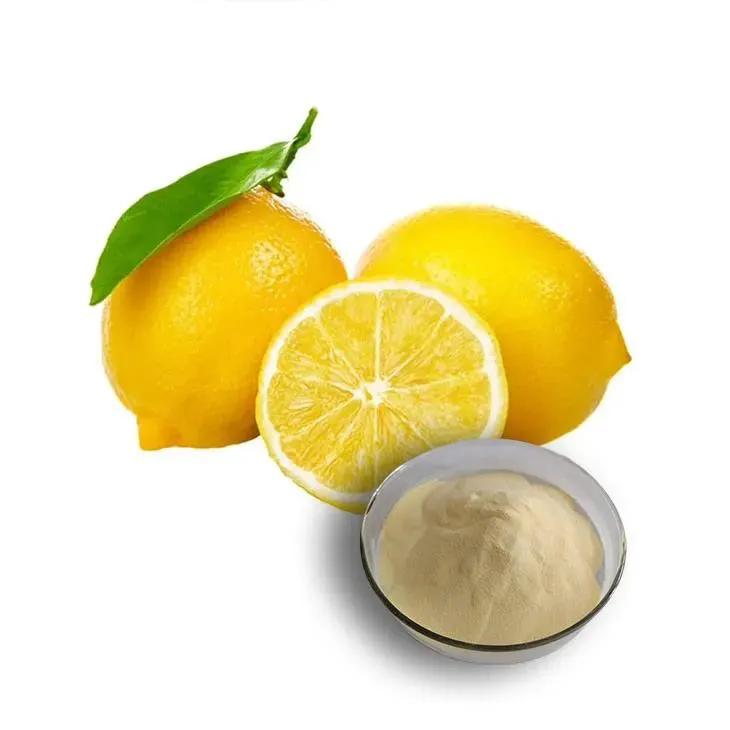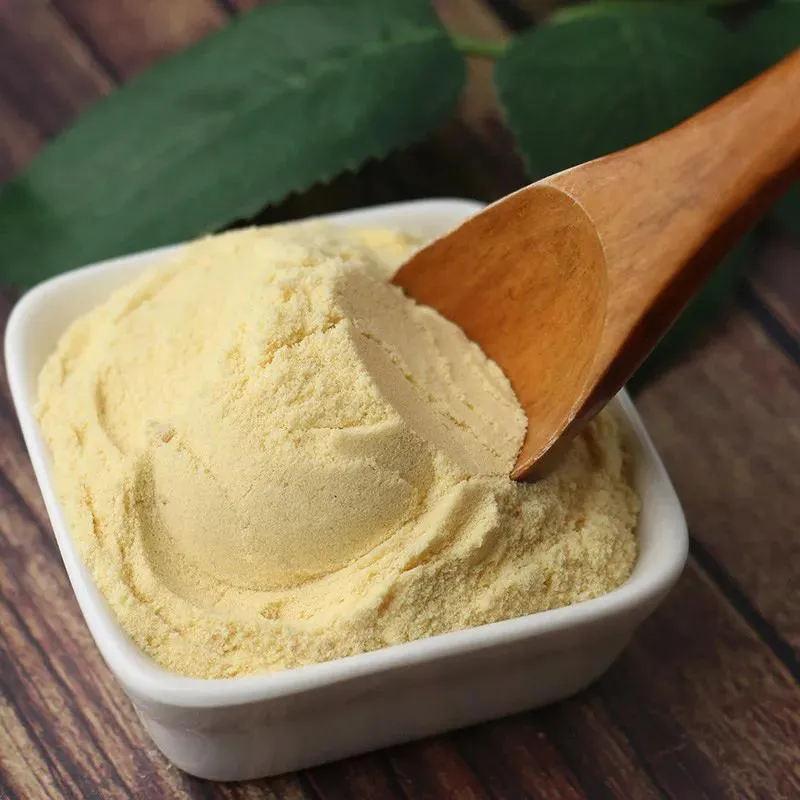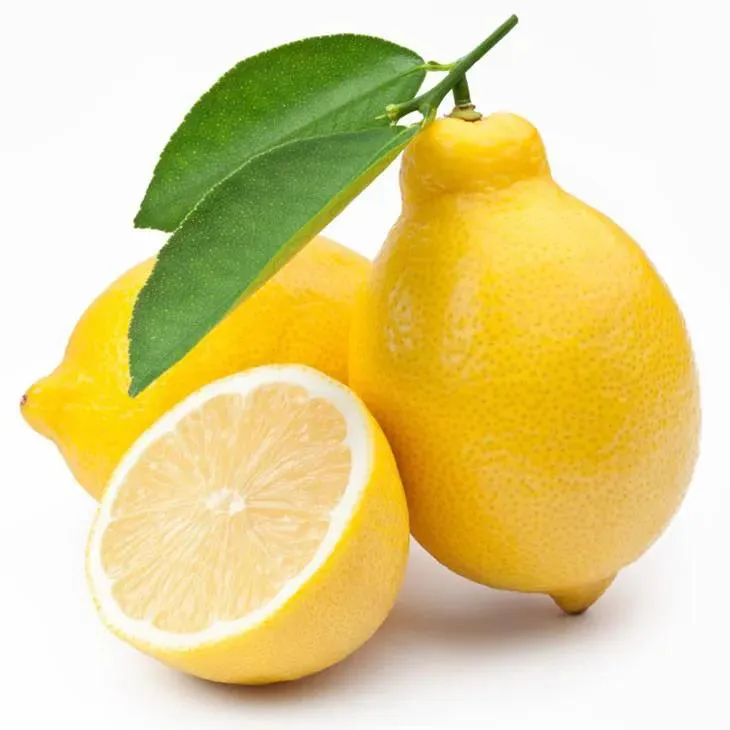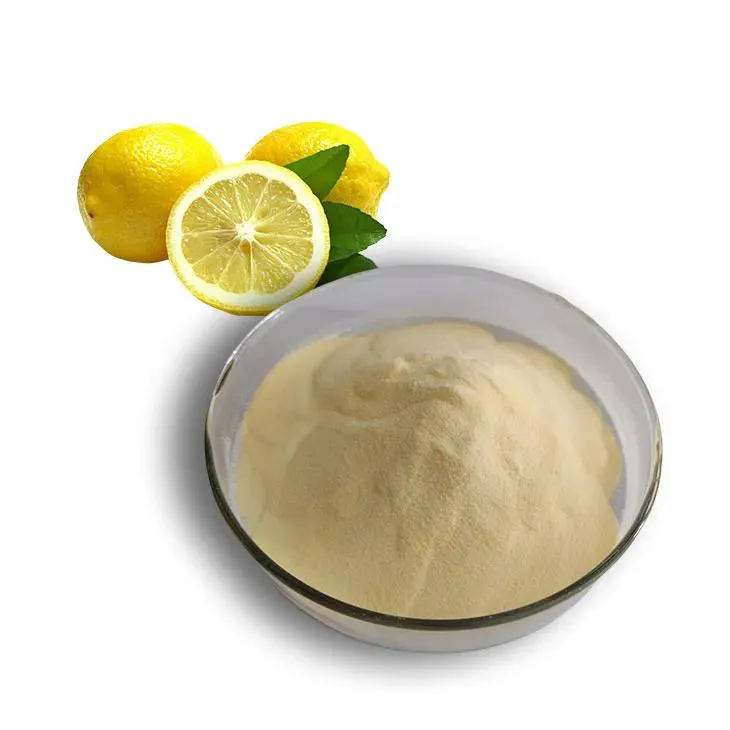- 0086-571-85302990
- sales@greenskybio.com
Organic lemon juice powder manufacturers.
2024-11-26

1. Introduction to Organic Lemon Juice Powder Manufacturers
Organic Lemon Juice Powder manufacturers play a crucial role in the food industry. They are responsible for creating a product that has gained significant popularity due to its numerous advantages. The process of manufacturing organic Lemon Juice Powder is not a simple task; it requires a great deal of knowledge, skill, and attention to detail.

2. Sourcing of Organic Lemons
2.1 Reliable and Certified Suppliers Manufacturers of organic lemon juice powder must be extremely careful when it comes to sourcing their lemons. They rely on reliable and certified suppliers to ensure the quality of their final product. These suppliers are often required to meet strict organic farming standards. Certifications such as USDA Organic in the United States or EU Organic in Europe are highly sought - after. By partnering with certified suppliers, manufacturers can guarantee the authenticity of their organic lemon juice powder.
2.2 Ideal Lemon - Growing Regions Organic lemons are typically sourced from regions known for their favorable lemon - growing conditions. For example, regions with a warm climate, adequate sunlight, and well - drained soil are ideal for lemon cultivation. In the United States, California is a major producer of lemons. In Italy, the Amalfi Coast and Sicily are renowned for their lemon orchards. These regions produce lemons with a high juice content and excellent flavor, which are essential for making high - quality organic lemon juice powder.

3. The Manufacturing Process
3.1 Pretreatment of Lemons Once the lemons arrive at the factory, the first step in the manufacturing process is pretreatment. This involves cleaning the lemons thoroughly to remove any surface contaminants such as dirt, pesticides (even though they should be minimal in organic farming), and other debris. This step is crucial as it helps to ensure the purity of the final product.
3.2 Mechanical Pressing for Juice Extraction After pretreatment, the lemons are subjected to mechanical pressing to obtain the juice. This process squeezes out the liquid from the lemon pulp, leaving behind the seeds and most of the fibrous material. Modern mechanical presses are designed to extract a maximum amount of juice while minimizing damage to the juice's quality.
3.3 Conversion of Liquid Juice to Powder The next step is the conversion of the liquid lemon juice into powder. This is a complex process that typically involves the removal of water content. There are several methods for achieving this, such as spray drying or freeze - drying. Spray drying involves spraying the liquid juice into a hot chamber, where the water evaporates quickly, leaving behind a fine powder. Freeze - drying, on the other hand, involves freezing the juice and then removing the water through sublimation. Both methods aim to retain the essential components of the lemon juice, such as vitamins, minerals, and flavor compounds.

4. Quality Assurance in Manufacturing
4.1 Regular Testing Quality assurance is of utmost importance for organic lemon juice powder manufacturers. They conduct regular tests to measure various factors. One of the key factors is acidity. The acidity level of the lemon juice powder needs to be within a certain range to ensure its taste and functionality. Another important aspect is the microbial content. Tests are carried out to detect the presence of harmful bacteria, yeast, or mold. Any contamination can lead to spoilage and pose a risk to consumers' health. Additionally, manufacturers also test for the presence of any foreign substances, such as pieces of peel or other impurities that may have entered the product during the manufacturing process.
4.2 Meeting Regulatory Requirements In addition to ensuring product quality for customer satisfaction, manufacturers must also meet regulatory requirements. Different countries and regions have their own regulations regarding food products, especially those labeled as "organic." These regulations cover aspects such as the use of pesticides, fertilizers in the lemon - growing process (even though it's organic, there are still rules to follow), and the manufacturing processes involved in converting the lemons into powder. By complying with these regulations, manufacturers can legally sell their products in various markets.

5. Product Development by Manufacturers
5.1 Adding Natural Ingredients Manufacturers are constantly looking for ways to innovate and develop their products. One approach is by adding other natural ingredients to the organic lemon juice powder. For example, they may experiment with adding a touch of organic honey powder. This not only adds a unique flavor but also provides additional health benefits. The combination of lemon and honey has long been known for its soothing properties, especially for the throat.
5.2 Varying Particle Sizes Another aspect of product development is exploring different particle sizes of the powder. Different applications require different particle sizes. For instance, for instant drinks, a finer powder is more desirable as it dissolves quickly and evenly. On the other hand, for use in baking, a coarser powder may be preferred as it can add texture and flavor without completely dissolving. Manufacturers need to be able to produce different grades of powder to meet the diverse needs of their customers.
6. Marketing by Organic Lemon Juice Powder Manufacturers
6.1 Educating Consumers about Benefits From a marketing perspective, manufacturers have an important role to play in educating consumers about the benefits of using organic lemon juice powder. They can highlight its long shelf - life. Unlike fresh lemons, which can spoil relatively quickly, organic lemon juice powder can be stored for an extended period without losing its quality. Ease of storage is another advantage. It takes up less space compared to storing fresh lemons or even bottled lemon juice. Moreover, it can be used all year round, regardless of the lemon season. This is a great selling point, especially for consumers who want to enjoy the taste of lemon in their cooking, baking, or beverages throughout the year.
6.2 Expanding the Market and Building Customer Loyalty By effectively communicating these benefits to consumers, manufacturers can expand the market for their product. They can target different consumer segments, such as health - conscious individuals, bakers, and beverage makers. Building a loyal customer base is also essential. This can be achieved through consistent product quality, excellent customer service, and by continuously innovating and improving the product. For example, manufacturers can offer special promotions, recipe ideas using their organic lemon juice powder, and engage with customers on social media platforms.
7. Conclusion
Organic lemon juice powder manufacturers are involved in a complex and multi - faceted business. From sourcing the highest - quality organic lemons to ensuring a meticulous manufacturing process, quality assurance, product development, and effective marketing, they play a vital role in bringing this versatile product to consumers. Their efforts contribute not only to the growth of their own businesses but also to the satisfaction of consumers who are increasingly seeking convenient and healthy food products.
FAQ:
What are the key steps in the manufacturing process of organic lemon juice powder?
First, manufacturers source organic lemons from reliable and certified suppliers. In the factory, the lemons are pre - treated to remove surface contaminants. Then, the juice is obtained by mechanical pressing. After that, the liquid lemon juice is converted into powder by removing water content while retaining the essential components.
How do organic lemon juice powder manufacturers ensure product quality?
They conduct regular tests to measure factors such as acidity, microbial content, and the presence of foreign substances. This is to meet regulatory requirements and ensure customer satisfaction.
What role does product development play for organic lemon juice powder manufacturers?
They may experiment with adding other natural ingredients like organic honey powder to create unique flavor blends. They also explore different particle sizes of the powder for various applications, such as a finer powder for instant drinks and a coarser one for baking.
How do manufacturers market organic lemon juice powder?
They need to educate consumers about the benefits of using it, like its long shelf - life, ease of storage, and the fact that it can be used all year round regardless of the lemon season. This helps expand the market and build a loyal customer base.
Why is it important for manufacturers to source lemons from reliable suppliers?
It is essential because it guarantees the authenticity and quality of the final product. The lemons are usually sourced from regions with ideal lemon - growing conditions.
Related literature
- Organic Food Production: Standards and Practices"
- "The World of Organic Citrus Processing"
- "Manufacturing High - Quality Fruit Juice Powders: A Comprehensive Guide"
- ▶ Hesperidin
- ▶ Citrus Bioflavonoids
- ▶ Plant Extract
- ▶ lycopene
- ▶ Diosmin
- ▶ Grape seed extract
- ▶ Sea buckthorn Juice Powder
- ▶ Fruit Juice Powder
- ▶ Hops Extract
- ▶ Artichoke Extract
- ▶ Mushroom extract
- ▶ Astaxanthin
- ▶ Green Tea Extract
- ▶ Curcumin
- ▶ Horse Chestnut Extract
- ▶ Other Product
- ▶ Boswellia Serrata Extract
- ▶ Resveratrol
- ▶ Marigold Extract
- ▶ Grape Leaf Extract
- ▶ New Product
- ▶ Aminolevulinic acid
- ▶ Cranberry Extract
- ▶ Red Yeast Rice
- ▶ Red Wine Extract
-
Saffron Extract Powder
2024-11-26
-
Coix Seed Extract
2024-11-26
-
Eyebright Extract
2024-11-26
-
Shikone Extract
2024-11-26
-
Chaste Berry Extract
2024-11-26
-
Cassia Seed Extract
2024-11-26
-
Eucommia Ulmoides Extract
2024-11-26
-
Stevia Extract
2024-11-26
-
Mulberry Extract
2024-11-26
-
Golden Seal Extract
2024-11-26





















